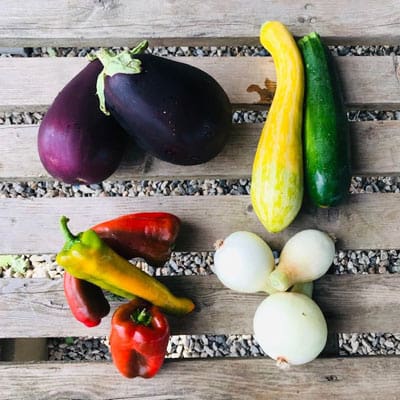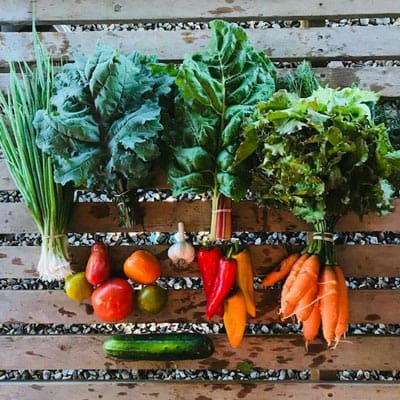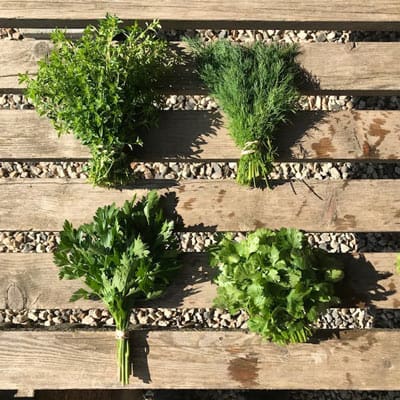Laura Neale first fell in love with Maine in 1996, when she moved from the outskirts of New York City to Waterville for college. As she drove past farm fields, open spaces, and green woods for the first time, she felt at peace. After graduating from Colby College, Laura left the state. But the precious memories of Maine’s nature and culture brought her back. And soon, she found herself cultivating farm fields of her own.
Sadly, over the last decades, Maine’s farming landscape has changed profoundly. In Lyman, where Laura owns and runs Black Kettle Farm, construction sites and rows of houses have too often replaced open space and trees.
Tired of feeling frustrated by witnessing these changes, Laura took matters into her own hands. With help from the Legal Food Hub, she secured a conservation easement that will permanently protect her farmland from development.
“The number of homes being built in what was farmland or woods is depressing, is disheartening. Visually, it takes away from the uniqueness of the landscape in Maine.”
Laura Neale

Connecting with People Through Food
As a college student, Laura admits she had a tough time connecting to academics. She yearned to be outside, surrounded by nature and engaging with the world around her. Through an apprenticeship program with The Maine Organic Farmers and Gardeners Association, Laura found an opportunity to work at a local vegetable farm. The work, the gadgets, and the rewards of farming filled Laura with joy.
Upon graduating college, Laura moved across the country, traveled the world, and continued to immerse herself in farming. Laura discovered she could connect her values and love for nature to a career. Laura’s connections to the northeast eventually led her back to Maine. Here, she pursued a new dream, to become a farm owner. In 2010, her dream became a reality.
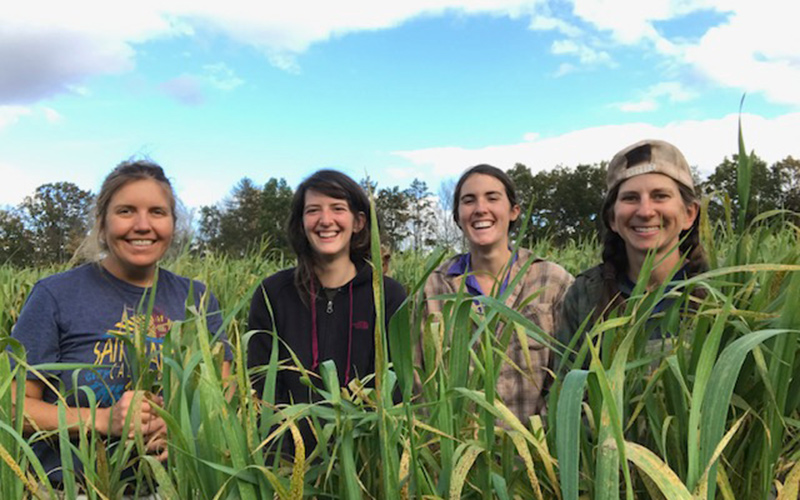
Today, Laura owns Black Kettle Farm, an organic vegetable farm in Lyman, Maine, a town of about 4,300 people a half-hour from Portland. These 12 acres of land, located in one of the state’s most densely developed regions, have a remarkable impact on the community. From local chefs to neighbors, Laura has made it a point to develop a relationship with her customers. To her, it’s critical that people get to know where their food comes from and who grows it.
Laura also runs a Community Supported Agriculture (CSA) program where, in exchange for a fee or work on the farm, people receive fresh produce for a full season. This program has gained popularity among locals, some of whom have participated for over ten years.
Despite the success of her small farm, recently Laura had begun to fear for its future and the community relying on it. She had seen too many farms plowed under for housing developments.
Pressures from housing and industrial development are not unique to her community. The American Farmland Trust estimates that, between 2001 and 2016, over 27,000 acres of Maine’s agricultural land were converted to industrial and housing development. That’s about 5.2% of the available agricultural land in the state. And these pressures extend well beyond Maine. Across New England, over 105,000 acres of agricultural land were threatened or lost to development during that same period. It’s a disheartening loss for a region that prides itself on its rural character and agricultural traditions.
Turning Frustration into Action
After years of feeling frustrated watching development overtake fertile farmland, Laura decided to take action. She chose to permanently protect her farm through a conservation easement. That legal tool would ensure Black Kettle remained open space – and could be farmed even by a future owner.
Laura reached out to the Maine Farmland Trust to get the easement started. But the legal process and paperwork were dense and difficult to navigate. She wanted to have clarity and ownership of the process as she made the irreversible decision to transfer some rights to her farm to a conservation trust. She needed an attorney. “I asked a couple of friends who had done similar projects, and one of them suggested the Legal Food Hub.”
“Sometimes, it just all feels really overwhelming. But, knowing that there are organizations who want to collaborate and support people with certain issues and ideas makes a difference.”
Laura Neale
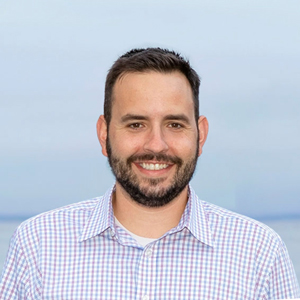
CLF’s Legal Food Hub, which operates in every New England state, matches farmers with volunteer attorneys who can help them navigate complex legal issues. These free legal services are invaluable for farmers like Laura, who otherwise would not be able to afford costly legal fees.
The Hub connected Laura to Chris Gordon, a first-time volunteer attorney from the law firm Perkins Thompson, who helped her review and negotiate the terms of the easement. “His expertise in real estate, his training, and his awareness of legal language made a huge difference,” says Laura.
Chris advocated for her at every step of the process and made sure she felt comfortable with all details of the easement. Putting an easement on your property is a substantial undertaking that should not be taken lightly, Chris says. “It was very important that [Laura] knew of the impacts and limitations that would come with the easement.”
A life-changing decision with a long-lasting impact
In the spring of 2021, after a year of dealing with arduous legal paperwork, the conservation easement on Black Kettle Farm became official.
“I’m really grateful that I took the steps that I did. It makes me feel more invested in my community and my state. And I feel proud that, rather than being frustrated, I can make a decision with a long-lasting impact.”
Laura Neale
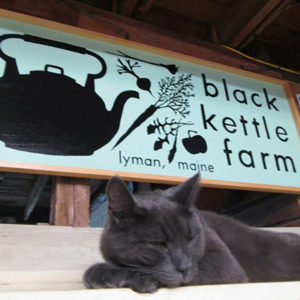
Laura feels proud and empowered by her ability to complete this process for her farm. But more than anything, she feels happy that there will be a space for other people to farm after her. “I have my small business here. I live here. This place is my world. And even when I move on and I’m forgotten, this farm will continue on.”


